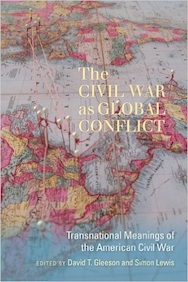 By David Madden
By David Madden
In 1992, Congress passed a resolution supporting the creation of the United States Civil War Center at Louisiana State University, the mission of which was to study the war from the perspective of every conceivable academic discipline, profession, occupation, ethnic group, and women and children, and to facilitate the planning of the sesquicentennial of the war. In 1996, fifteen years before the sesquicentennial began, I testified as founding director of the Center in support of the creation of a national Civil War Sesquicentennial Commission patterned after the Centennial Commission. The Congress failed to act, LSU incrementally dismantled the U. S. Civil War Center, and the sesquicentennial ended in 2015 after four years of lackluster, unimaginative commemoration.
One of the most innovative books on the Civil War, Look to the Earth: Historical Archeology and the American Civil War, edited by Clarence Geier and Susan Winter, appeared in 1996 from the University of Tennessee Press. The Center helped develop and facilitated the publication at that press of a unique book, Ninety-eight Days: A Geographer’s View of the Vicksburg Campaign, by Warren Graybau, and two unusual books on the neglected work of engineers for the Confederacy and for the Union.
Now the University of South Carolina Press has the distinction of publishing one of the few innovative books of the sesquicentennial years, The Civil War as Global Conflict: Transnational Meanings of the American Civil War, edited by David T. Gleeson and Simon Lewis. This collection of thirteen solicited, previously unpublished essays by older well-established and young historians is also a major contribution to the relatively new and innovative Atlantic Studies discipline, and the first to examine the Civil War.